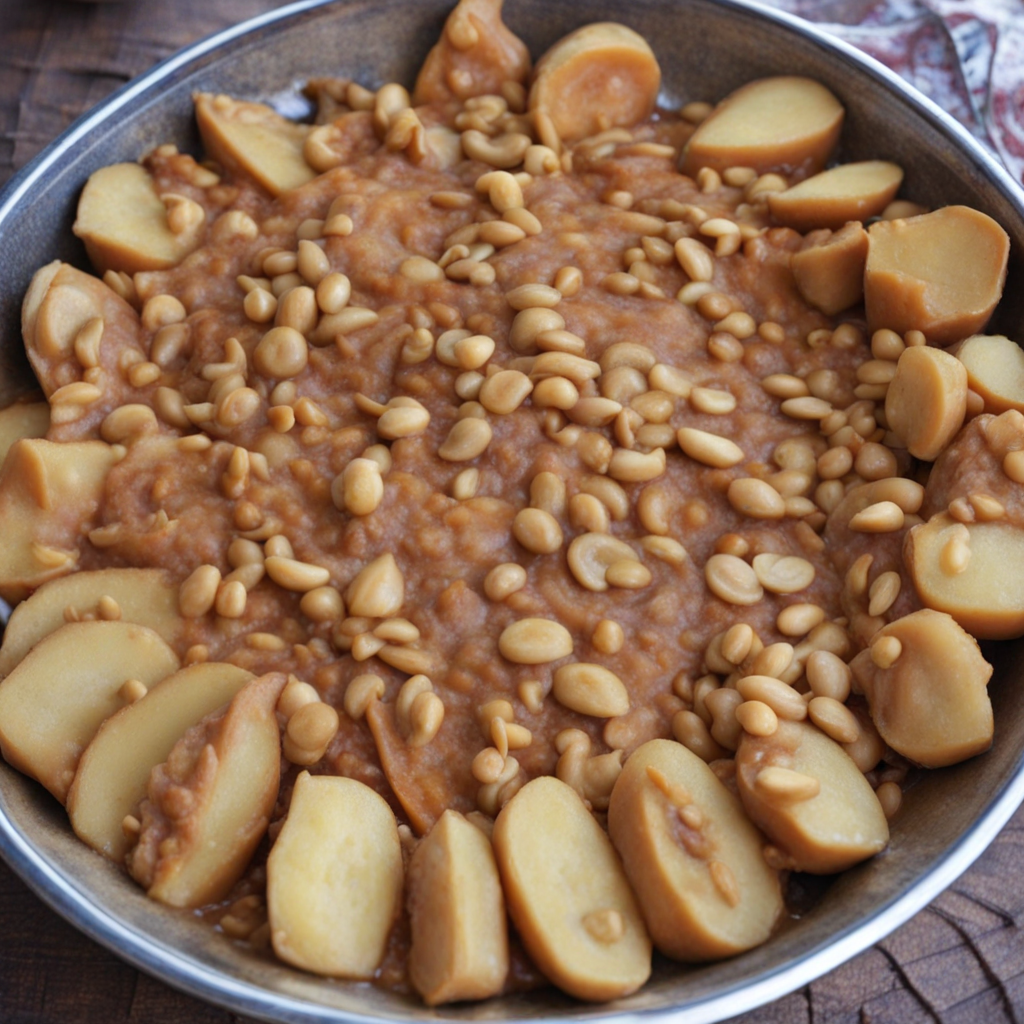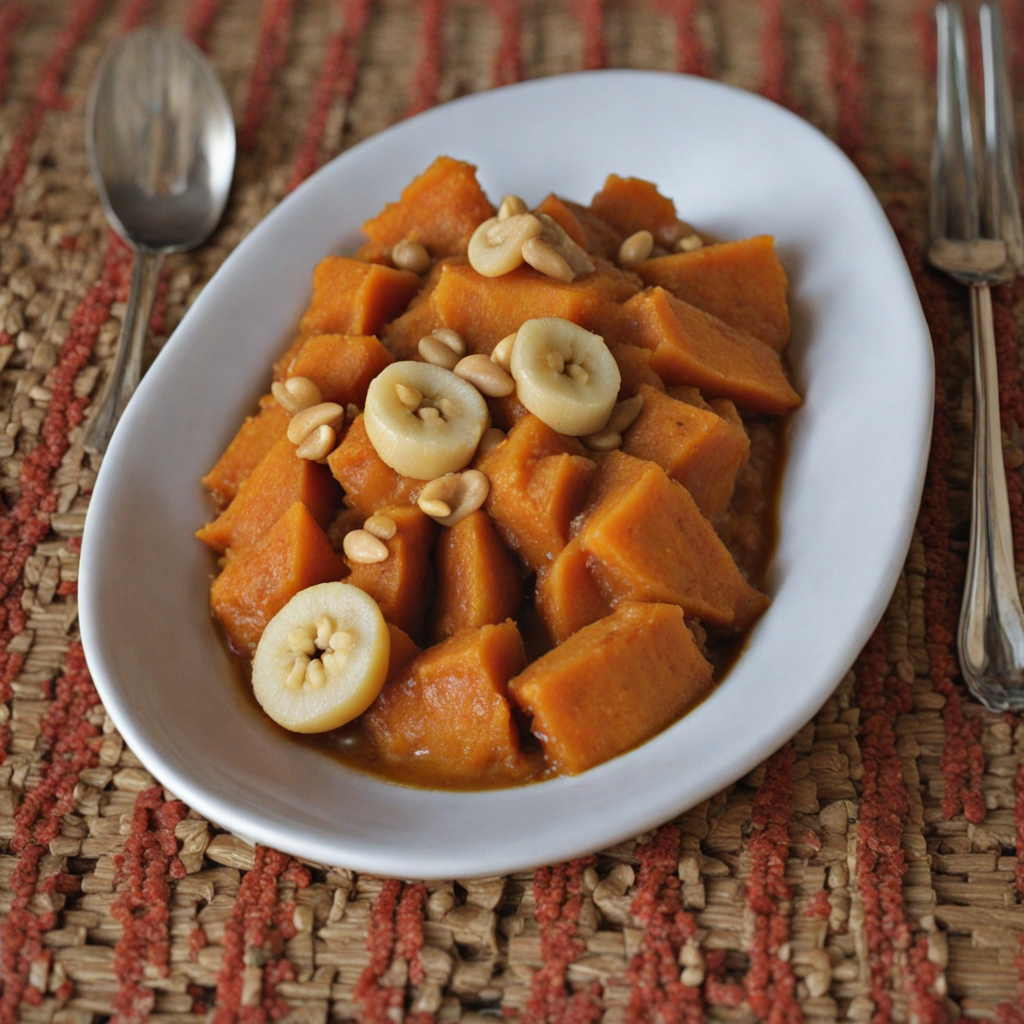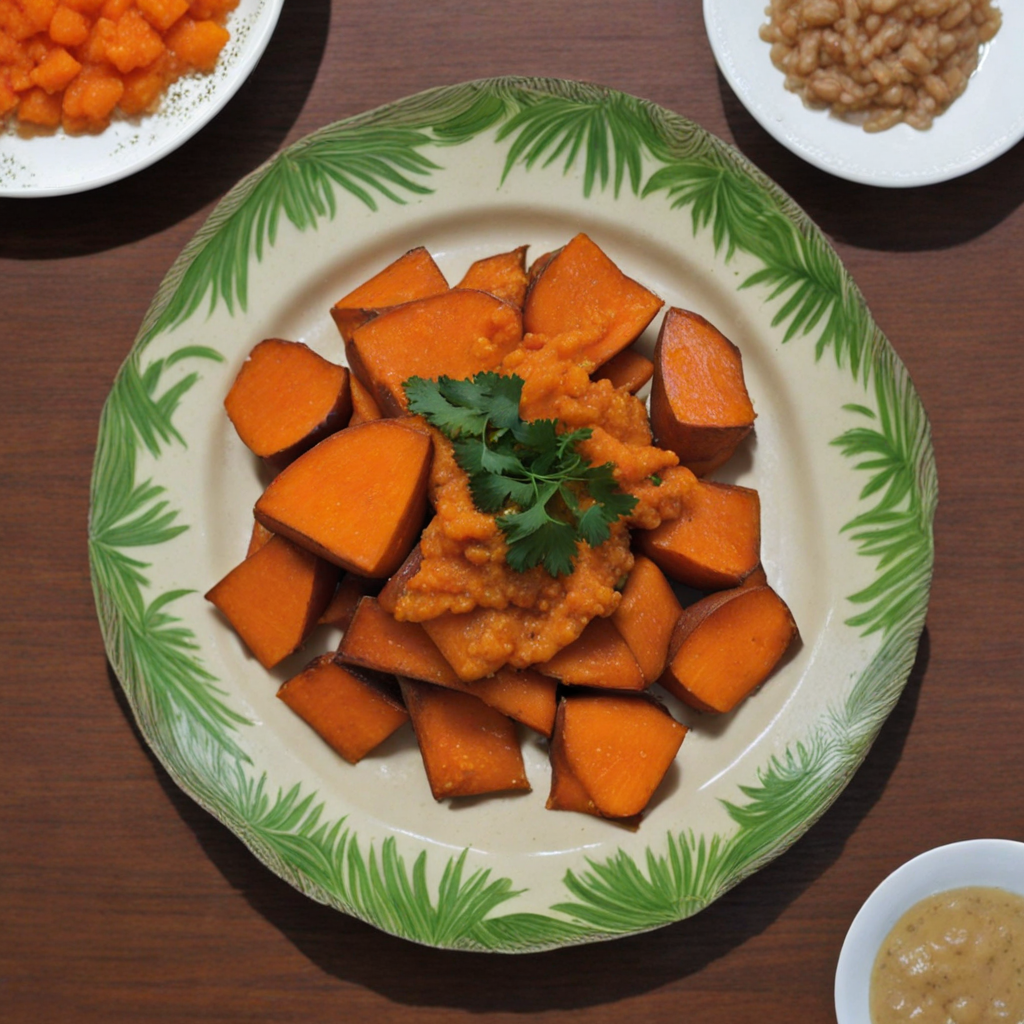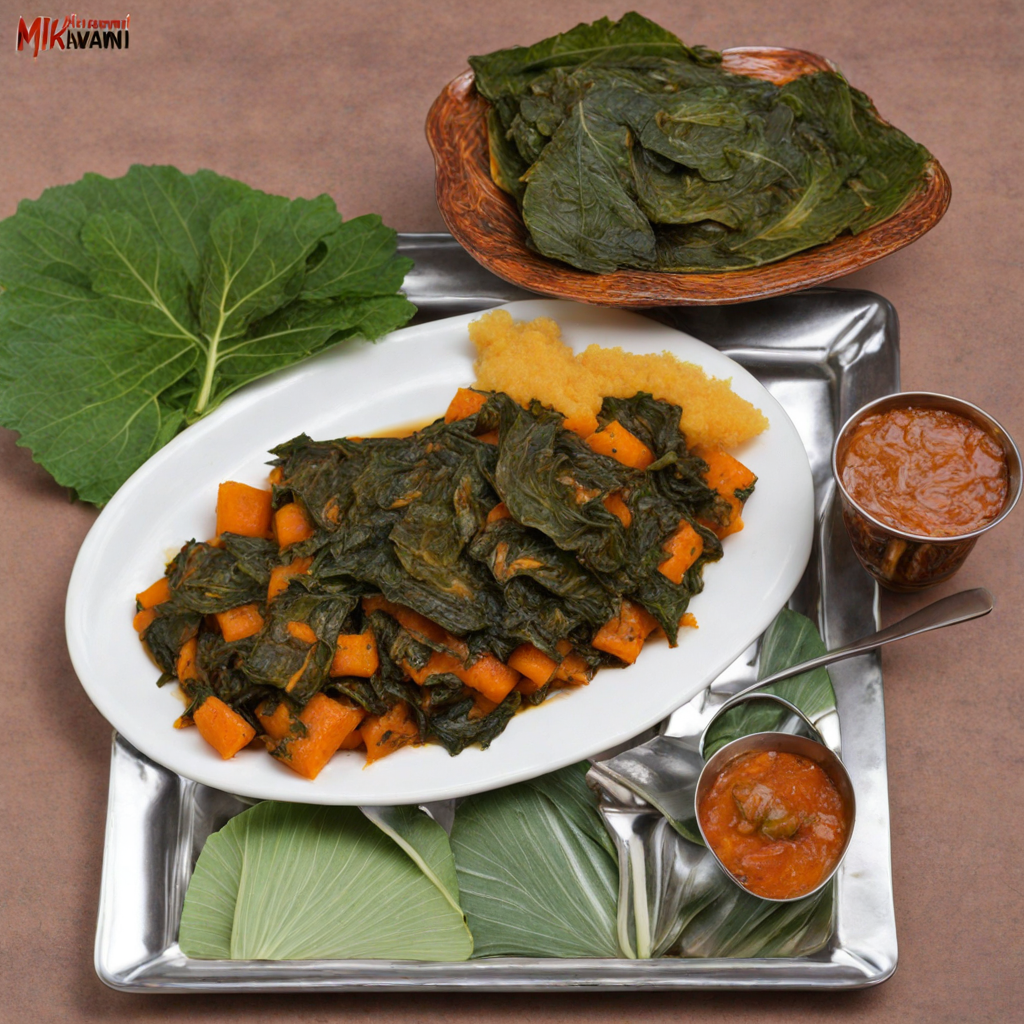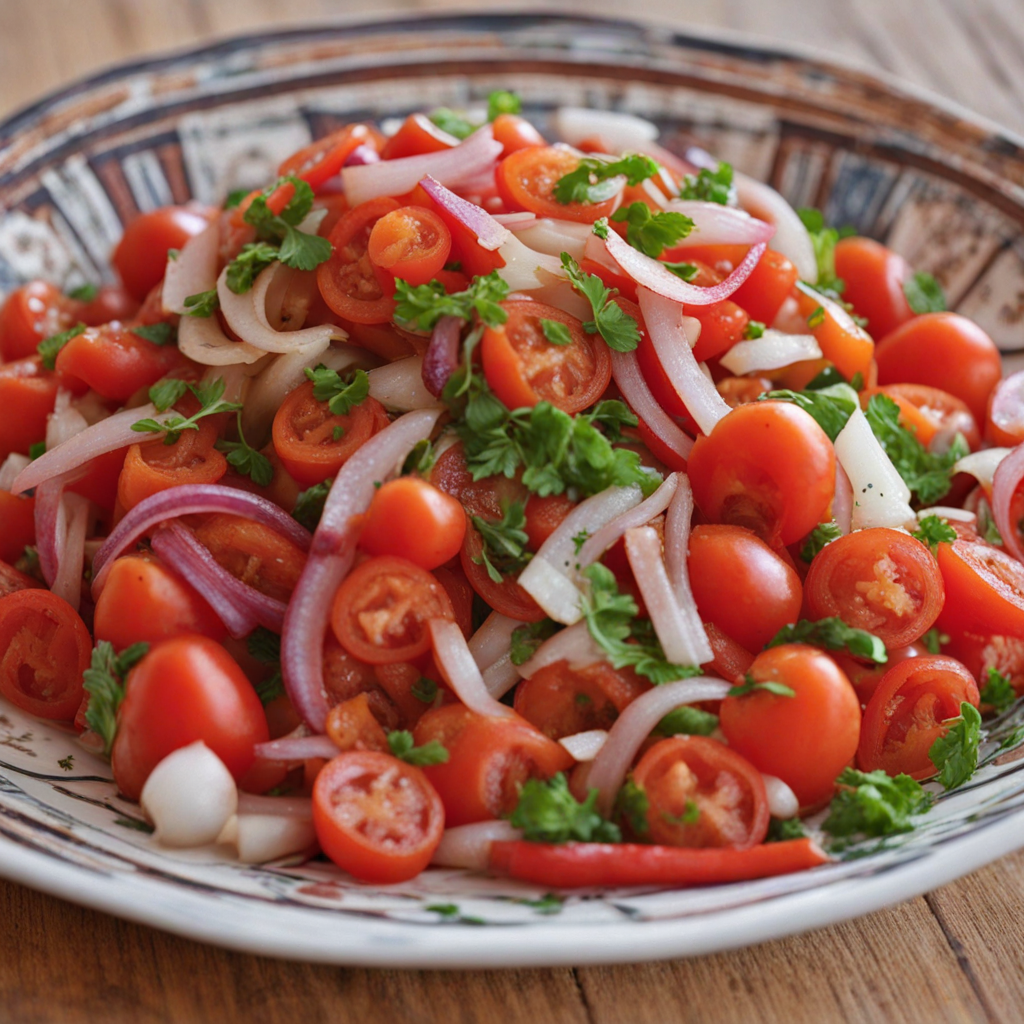Futali
Futali is a delightful dish from Malawi that showcases the country's rich agricultural heritage and culinary traditions. This dish is primarily made from a unique blend of cornmeal, which is a staple in Malawian cuisine, and various seasonal vegetables. The cornmeal is cooked to a smooth, porridge-like consistency and often flavored with spices such as salt and pepper to enhance its natural sweetness. The addition of local vegetables not only adds a burst of color but also elevates the nutritional value of the dish, making it a wholesome and satisfying meal. One of the most appealing aspects of Futali is its versatility. Depending on the region and the season, you may find different vegetables incorporated into the dish, ranging from leafy greens like kale and mustard greens to root vegetables such as sweet potatoes and carrots. This adaptability allows Futali to reflect the local produce available, giving it a unique taste profile that changes throughout the year. The dish is often enjoyed with a variety of accompaniments, such as fried fish, grilled meat, or a spicy relish, which complement the creamy texture of the cornmeal base. The experience of savoring Futali is not just about the flavors; it also embodies a sense of community and tradition. Often prepared for family gatherings or special occasions, this dish brings people together around the table, celebrating Malawian culture and hospitality. Eating Futali is a journey of discovering the heart of Malawi, where each bite tells a story of the land, the people, and their connection to the ingredients that nourish them.
How It Became This Dish
The History of Futali: A Culinary Treasure of Malawi Futali, a beloved dish originating from Malawi, is a rich tapestry woven from the threads of indigenous traditions, agricultural practices, and cultural exchanges that have shaped the region throughout history. This simple yet nutritious dish, primarily made from maize flour, has not only garnered a place on the dining tables of Malawians but also serves as a symbol of unity, identity, and heritage. #### Origins of Futali The roots of Futali can be traced back to the Bantu migrations, which began around 2000 years ago. The Bantu people, who settled in various regions of Africa, including present-day Malawi, brought with them agricultural knowledge and staples such as maize. Maize became a cornerstone of Malawian cuisine due to its adaptability to local climates and soils. It was during these early centuries that the culinary practice of making Futali began to take shape. Futali itself is a type of porridge or thick dish, primarily prepared from maize flour and often enhanced with ingredients such as groundnuts (peanuts), beans, or vegetables. The name "Futali" is believed to derive from the Chichewa word “futalika,” which means “to mix or stir.” This is a fitting description, as the dish involves a process of careful blending of ingredients to achieve the desired texture and flavor. #### Cultural Significance Futali plays a significant role in the daily lives of Malawians, transcending mere sustenance to embody cultural identity and community spirit. Traditionally, Futali is not only a dish consumed at home but also a staple during communal gatherings, ceremonies, and celebrations. It is often served alongside other dishes such as fish, vegetables, or meats, reflecting the communal nature of Malawian dining. In rural settings, the preparation of Futali is often a communal effort, with families and neighbors coming together to grind maize, prepare the ingredients, and cook the dish. This collaborative process reinforces social bonds and strengthens community ties. It is not uncommon to find Futali being prepared for important life events, such as weddings, funerals, and harvest celebrations, where it symbolizes abundance and the sharing of blessings. Futali's versatility also makes it a dish that can be adapted to various cultural contexts. For instance, alongside traditional ingredients, it can be modified with spices and flavors introduced through colonial influences and later interactions with global culinary practices. This adaptability has allowed Futali to maintain its relevance in a rapidly changing world. #### Development Over Time As Malawi transitioned through various historical epochs—from the establishment of kingdoms and colonial rule to independence and globalization—the preparation and consumption of Futali evolved alongside it. During the colonial era, which began in the late 19th century, new agricultural practices were introduced, including the impact of cash crops and the imposition of foreign dietary preferences. However, despite these changes, Futali remained a staple for many Malawians, serving as a comforting reminder of traditional roots amidst the complexities of colonial life. The post-independence era in the 1960s marked a resurgence of pride in indigenous cultures, and Futali became a symbol of national identity. It was during this time that Malawians began to embrace and promote traditional foods as a means of preserving cultural heritage. Futali was featured in schools, community events, and national celebrations, reinforcing its status as a cultural icon. In recent decades, globalization has introduced new challenges and opportunities for traditional foods like Futali. With the rise of fast food and changing dietary patterns, some younger generations have gravitated towards more modern culinary trends. However, this has also sparked a renewed interest in traditional foods, with many Malawians, particularly in urban areas, seeking to reconnect with their cultural heritage through cooking classes, food festivals, and social media platforms showcasing traditional recipes. The growth of the internet has facilitated the exchange of culinary knowledge, allowing Futali to gain recognition beyond Malawi's borders. Food bloggers and culinary enthusiasts have documented the preparation of Futali, sharing recipes and stories that highlight its significance. This visibility has led to a greater appreciation for Malawian cuisine and its rich history, captivating the interest of food lovers around the world. #### Modern Variations and Innovations As Futali continues to evolve, contemporary chefs and home cooks are experimenting with the dish by incorporating global ingredients and flavors. For instance, Futali may be prepared with the addition of kale or spinach, or served with a spicy tomato sauce, reflecting the fusion of traditional and modern culinary practices. These innovations not only enhance the flavor profile of the dish but also appeal to a more diverse palate, making it relevant in today’s globalized world. Moreover, health consciousness has begun to influence the preparation of Futali. With a growing awareness of nutrition and wellness, many cooks are opting for whole grain maize flour or experimenting with alternative grains, such as sorghum or millet, to enhance the dish's nutritional value. These variations maintain the essence of Futali while adapting to contemporary dietary trends. #### Conclusion Futali is more than just a food item; it is a testament to the resilience and adaptability of Malawian culture. Its journey from humble beginnings to a cherished staple illustrates the importance of food in shaping identity and fostering community. As Malawi navigates the complexities of modernity, Futali stands as a bridge between the past and the future, reminding all who partake of its comforting embrace of the rich heritage that has shaped this vibrant nation. In a world increasingly dominated by fast-paced lifestyles and homogenized cuisine, Futali serves as a reminder of the beauty of simplicity, the importance of tradition, and the power of food to connect us to our roots and to one another. Whether served at a family gathering, a community celebration, or enjoyed quietly at home, Futali remains a cherished dish that nourishes both the body and the spirit, embodying the heart of Malawian culture.
You may like
Discover local flavors from Malawi


